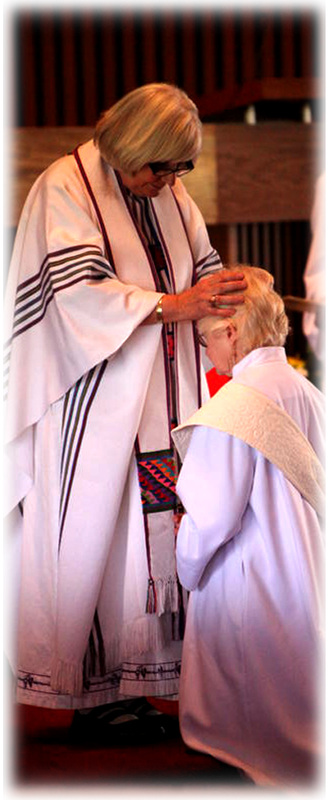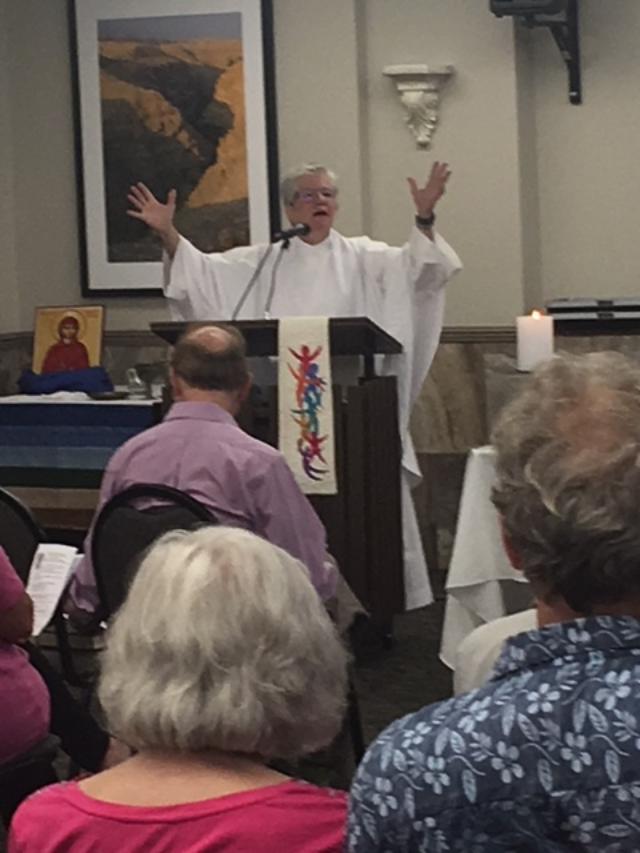Helen Weber-McReynolds, RCWP
Nehemiah 8: 2-6, 8-10; Ps. 19; Rev 5: 1-5; Luke 1: 1-4, 4: 14-21
Homily, 1/23/2022
When we think of the law these days, I know I tend to think of the negative consequences of breaking the law. I think of enforcement, of judgement, of people getting a ticket or being put in jail if they don’t obey the law. But law can also be positive. It can be a way of teaching people how to model their behavior so that they have the advantages of freedom and happiness. I think it’s very interesting that since the previous President was elected, and especially since the 1/6/21 insurrection at our nation’s capitol, there is a new interest in civics. There are all kinds of programs and resources to help learn about the laws of our voting system and even how to run for office. These have reminded people how the foundation of our government is constructed, and what makes it a democracy, and how it differs from (or maybe is teetering towards?) an autocracy. We have been reminded, by reporters, legal experts, and political analysts, over the past 5 years, how our votes are counted and the mechanics of our elections, from the local precinct to the electoral college, and how important it is that we guard these systems from interference. The law has been a teacher about how delicate our freedom can be.
Our Hebrew ancestors thought of law as teaching. The word for the first five books of the Bible, commonly referred to as the Books of the Law, is Torah. But the literal definition of torah in Hebrew is instruction, and other meanings of torah can be teaching, guidance, or direction. We can recall from the book of Exodus, that the people of God asked for a law to live by, for a code of ethics, to help and guide them in making life decisions. God did not impose the law on the people unsolicited, and the law was not just a tool meant for judgement. It was for guidance and teaching.
In our first reading, Nehemiah was reintroducing the word of the Torah to the people as they returned to Jerusalem from exile in Babylonia. They wept at first hearing, realizing their shortcomings over the years. But then they celebrated with a festival of rich food and sweet wine, because they had relearned the teaching of God. They felt renewed in having a program of ethical guidance and justice parameters by which to rebuild their society. And it started with the reminder Nehemiah gave them about the festival—which amounted to, “Be sure to send a plate of food and a bottle of wine over to your neighbors who cannot provide for themselves.” A top priority of God’s law of love was that all of society must work together for the common good.
The book of Revelation, from which our second reading comes, is thought to be a kind of coded account written for the people of the early church, to give them guidance and hope, but to avoid evoking persecution from the autocratic empire they were living under. It imitated the apocalyptic style of writing of the book of Daniel to help the early Christians look forward to better days, while maintaining belief in God’s love and the continued presence of the Christ among them. The message of this particular reading, about how the Holy One of God would unlock the scroll of God’s word, seems to be that the Christ reveals the truth of God’s word always and forever. We can continue to look to the teachings of Jesus and all the prophets for guidance and instruction.
Our Gospel passage today recounts another presentation of God’s word, by Jesus. This is sometimes called Jesus’ first homily, though it was only one sentence long. He read the beautiful passage from the prophet Isaiah, announcing sight for the blind, release for prisoners, and good news for the poor. Then he said that this scripture had been fulfilled in the hearing of the people gathered there that day. In other words, Jesus seemed to say, the Spirit of God was upon him, he was anointed by God to bring this good news to the poor, and God had sent him to proclaim liberty to those held captive. But not him alone, we hear him say. Luke follows up, after this passage, by recounting how Jesus told the people that this good news was not only for all the faithful Hebrew people in the synagogue that day, but for all people, and cited several stories from the Hebrew scriptures of non-Jews who had heard and acted on God’s message of love. The people that day were not ready to hear that message, and reacted negatively, threatening to throw Jesus off a cliff. But the following passages in Luke testify that the people of the synagogue at Capernaum were more receptive, as were those in other synagogues around Judea.
Jesus was already using scripture as a teaching tool here, early in his ministry. We are all anointed by God to spread God’s love, he was saying. We are all meant to help liberate one another from destructive, judgmental views of God, or from abusive religious practices that limit people from living the joy for which God created them. We are all called to open one another’s eyes to the limitless nature of God’s love, for all of us, and to the responsibility we have to share this love. We are especially called to share this good news with those most held captive by injustice, negativity, or the idea that they are unlovable. And we are called to not only share words, but also to send them a plate and a bottle of wine, if that’s what they need, recalling Nehemiah’s instruction, or to do whatever we can to help them materially. As Pope Francis has said, “You pray for the hungry. Then you feed them. This is how prayer works.”
God’s word, then, truly is Spirit and life. It is our liberation from oppression, and our promise of God’s eternal love. It is the key to how we can relate to one another in love. It is the teaching we need to live the lives of joy God meant for us.
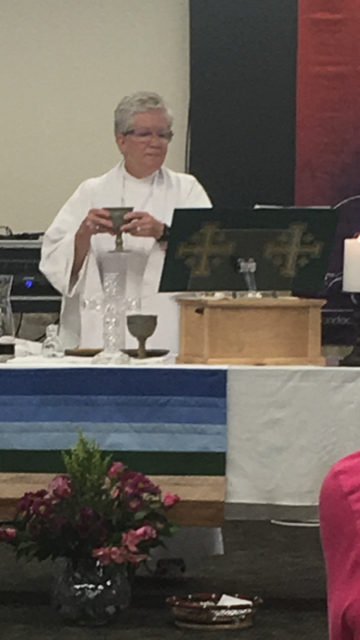
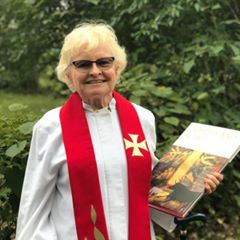
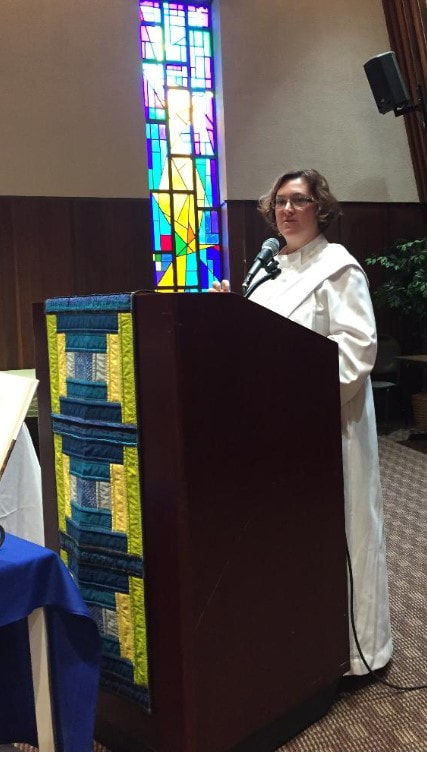
 RSS Feed
RSS Feed
